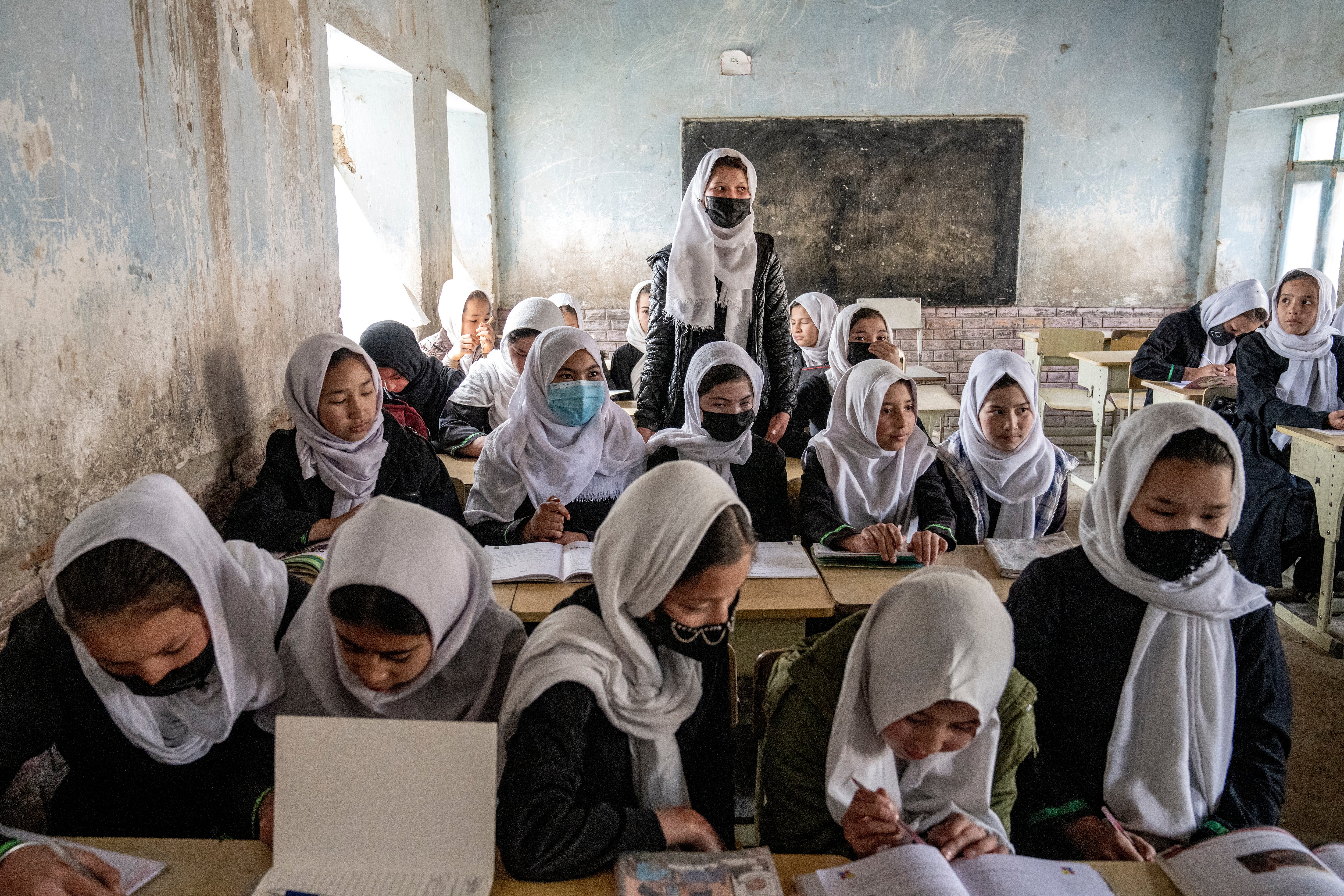1,000 days have passed since the Taliban barred girls from secondary education, the UN says
One thousand days have passed since girls in Afghanistan were banned from attending secondary schools

Your support helps us to tell the story
From reproductive rights to climate change to Big Tech, The Independent is on the ground when the story is developing. Whether it's investigating the financials of Elon Musk's pro-Trump PAC or producing our latest documentary, 'The A Word', which shines a light on the American women fighting for reproductive rights, we know how important it is to parse out the facts from the messaging.
At such a critical moment in US history, we need reporters on the ground. Your donation allows us to keep sending journalists to speak to both sides of the story.
The Independent is trusted by Americans across the entire political spectrum. And unlike many other quality news outlets, we choose not to lock Americans out of our reporting and analysis with paywalls. We believe quality journalism should be available to everyone, paid for by those who can afford it.
Your support makes all the difference.One thousand days have passed since girls in Afghanistan were banned from attending secondary schools. That's according to the U.N. children’s agency, which said Thursday that “no country can move forward when half its population is left behind.”
UNICEF Executive Director Catherine Russell in a statement urged Taliban authorities to allow all children to resume learning immediately, and called on the international community to support Afghan girls, who she said need it more than ever. The agency estimates that more than 1 million girls are affected.
The U.N. has warned that the ban on girls’ education remains the Taliban’s biggest obstacle to gaining recognition as the legitimate rulers of Afghanistan.
The Taliban, who took over in Afghanistan following the withdrawal of U.S. and NATO forces in 2021, has said girls continuing their education goes against the group's strict interpretation of Islamic law.
Despite initially promising a more moderate rule, Taliban have also barred women from higher education, public spaces like parks and most jobs as part of harsh measures imposed. When the Taliban ruled Afghanistan in the 1990s, they also banned girls’ education.
The Taliban has barred girls from attending classes beyond sixth grade, making it the only country in the world with such restrictions on female education.
In March, the new school year started with girls barred from attending classes beyond the sixth grade. Female journalists were not allowed to attend the opening ceremony.
The Taliban also have been prioritizing Islamic knowledge over basic literacy and numeracy with their shift toward madrassas, or religious schools.
UNICEF's executive director called the systematic exclusion of girls “not only a blatant violation of their right to education, but also results in dwindling opportunities and deteriorating mental health.”
She said UNICEF works with partners to run community-based education classes for 600,000 children, two-thirds of them girls, and train teachers.
Although Afghan boys have access to education, Human Rights Watch has said the Taliban's “abusive” educational policies are harming them. In a report published in December, the group said deep harm has been inflicted on boys’ education as qualified teachers — including women — left, including an increase in corporal punishment.